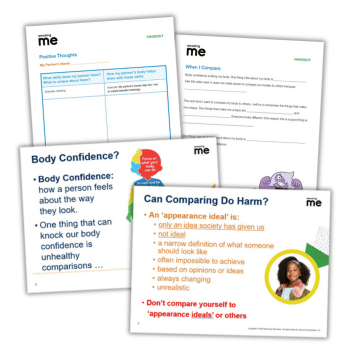Does your Early Years Setting have a Medical Conditions Policy?

All schools have a statutory duty to support children with continence problems or other health issues, explains Alina Lynden…

- by Alina Lynden
- Communications manager at bladder and bowel charity ERIC

Following the introduction of the Children and Families Act in September 2014, it became law for every maintained school in England to look after children with medical conditions.
For schools to fulfil their statutory duty, they are expected to have a medical conditions policy in place, outlining how they will be inclusive of, and look after, children with health problems.
Shockingly, three years on and despite it being a legal requirement, many schools still don’t have a policy.
Lack of awareness
Up to two million children in England are struggling with long-term medical conditions, including continence problems.
Many of these young people do not get the care they need in school because education settings are not aware of what is expected of them.
In 2016, the Health Conditions in Schools Alliance asked schools across the country whether they had a medical conditions policy in place. Incredibly, over two-thirds could not show that they did.
Why is a policy important?
It is vital that every school has its own policy; not just because it is a legal requirement, but also because it clarifies how the school will support children with medical conditions and make sure it is prepared and able to do so.
The policy should also:
- Outline the procedures for getting the right care and training in place, and who is responsible for making sure the policy is carried out
- Recognise that health conditions can be life-threatening and that they can also affect how a child learns
- Be made publicly available on the school’s website
- Be regularly reviewed and audited to make sure the arrangements for children with medical conditions are working.
The Health Conditions in School Alliance
ERIC, The Children’s Bowel & Bladder Charity is a member of the Health Conditions in Schools Alliance, a campaigning coalition of over 30 organisations, including charities, healthcare professionals and trade unions who work together to make sure children with health conditions get the care they need in school.
The Alliance campaigns for the government to ensure all schools support children with medical conditions.
The Alliance’s website offers guidance and tools to schools who have pupils with health conditions. They have a downloadable medical conditions policy template, sample individual healthcare plans for a number of medical conditions and advice on what the plan should contain.
There’s also guidance on the legal situation across the UK and information on the process for making sure children who require education in different settings get the support they need.
Continence problems at school
There are an estimated 900,000 children and teenagers with a bladder or bowel problem in the UK, which equates to roughly one in 10.
Children and teenagers with continence problems such as constipation and soiling or an overactive bladder regularly take medication at school and need to be supported by staff to ensure it’s taken at the right times and in the right doses.
They may also need help with toileting routines so that they can properly manage their condition.
ERIC’s Right to Go campaign aims to uphold every child’s right to support and care for a bladder or bowel problem in school.
The charity offers free downloadable resources via its website, including a template individual health plan for children with continence issues.
ERIC also delivers training courses to help early years settings, primary and secondary schools to implement best practice when managing childhood continence problems.
In addition to their standard courses, the charity offers bespoke training for any team of professionals, including teachers and early years practitioners, who support children with bowel and bladder problems.
For more details, visit eric.org.uk/specialist-paediatric-continence-training.
Alina Lynden is Communications Manager for ERIC, the only charity dedicated to the bowel and bladder health of all children and teenagers in the UK. Its helpline is open Monday–Thursday, 10am–2pm – call 0845 370 8008. Alternatively, email helpline@eric.org.uk or visit eric.org.uk.










